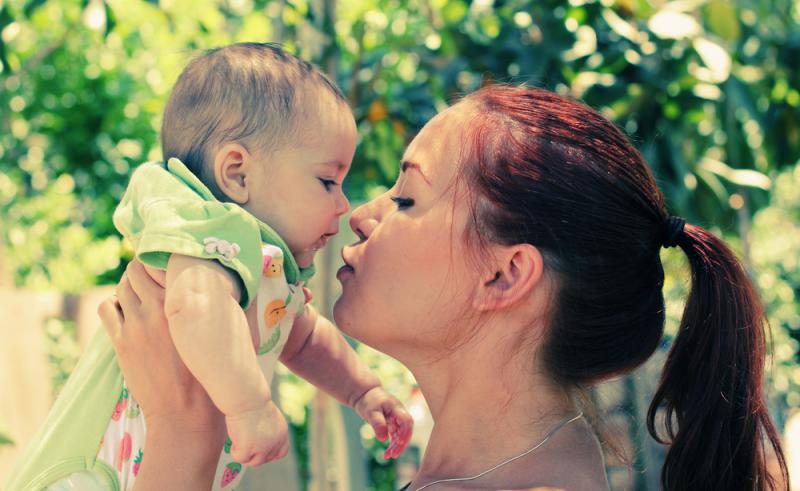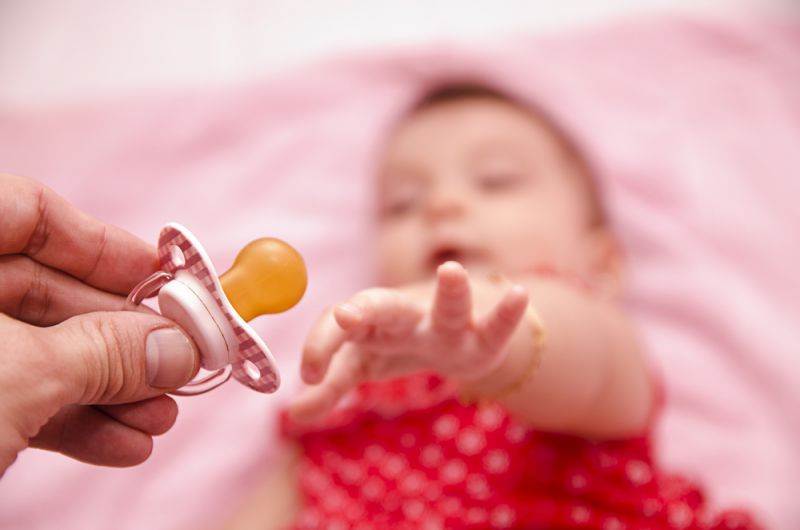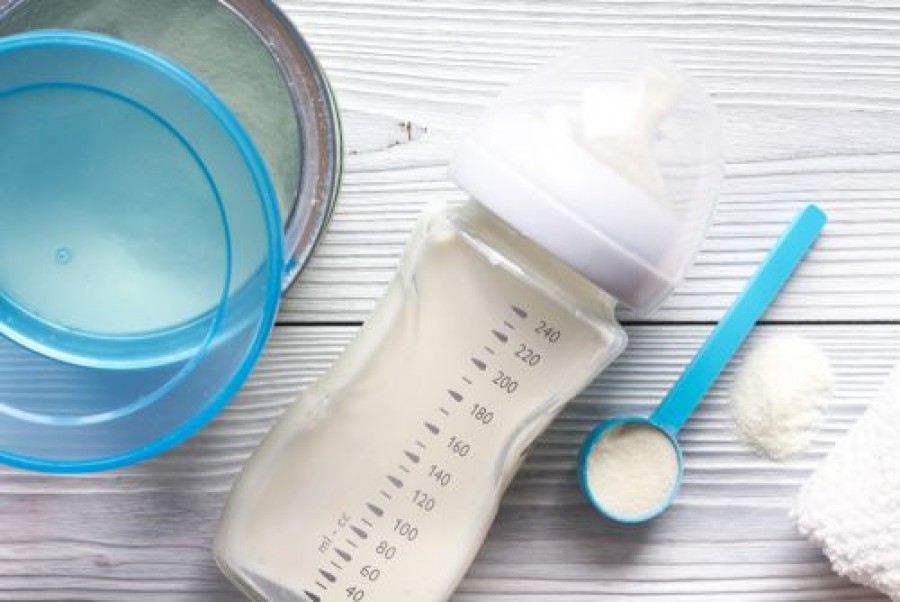Colic in Babies: Causes, Remedies and Treatment

Crying in babies is completely normal and to be expected.
In fact, most babies cry for approximately 2-3 hours per day.
However, some babies cry a lot more. If a baby cries for more than 3 hours, 3 or more times a week, they are considered to have colic.
Colic is basically unexplained excessive crying in a baby. It is a common condition amongst babies in Australia; it affects approximately 1 in every 5 babies.
What Causes Colic in Babies?
While colic has been studied, the cause of it is still unknown.
Babies that have colic usually have no known underlying medical conditions, and other than the excessive crying, seem to be perfectly healthy and normal.
Some possible theories of the cause of colic are:
Cause #1: Mum’s diet

Some people think that what a breastfeeding mum consumes can cause her bub to be colicy.
However, there is no proof of this and there are currently no recommendations of diet changes for colicy babies’ mums.
Cause #2: Stressed or anxious parents

Sometimes parents that appear to be under stress are blamed for their baby’s colic.
There is no actual evidence that this is true, and parents should never be blamed for their baby’s crying; of course, caring for a baby that cries excessively is going to put extra stress on someone.
Cause #3: Immaturity

It has been suggested that the excessive crying associated with colic might be a cause of the baby simply having trouble adjusting to the new world around them.
Cause #4: Excess Wind

One of the more popular theories of the cause of colic is the baby having too much wind. Babies with colic do appear to struggle with this, but it is likely an effect rather than a cause as crying can cause swallowing of air.
Cause #5: Abdominal Pain

Another major belief of what causes colic is that the excessive crying is a result of the baby experiencing abdominal pain.
During crying episodes, babies with colic often exhibit symptoms of abdominal pain such as pulling their legs up towards their bellies.
How do I know if my baby has colic?
Babies cry for many reasons so colic should not be the first assumption when a baby is crying excessively.
If your baby is crying for more than 3 hours at a time, it’s best that you contact your baby’s doctor.
There is no test for colic, but your baby’s doctor can rule out other conditions in order to diagnose colic if that is indeed what your baby is suffering from.
Babies with colic usually show the following symptoms:
- Crying for more than 3 hours a day
- Pulling their legs up into their stomach
- Not being able to be easily soothed
- Face turning red
- Passing wind, especially at the end of a crying fit
Soothing Your Colicy Baby
Dealing with a crying baby can be very stressful, especially if it’s your first baby. Nothing is guaranteed to calm a colicy baby, but there are plenty of things you can try.
You may find that several things work well for your baby, or you may find that nothing will calm your baby.
Just do your best and try to stay as calm as you can.
Tip #1: Check that your baby’s basic needs are met

The first thing you should do any time that your bub is upset is to make sure that all of their most basic needs are met.
This means making sure that they are not hungry or tired and that their diaper is clean and dry. Also make sure that they are not too hot or cold and that there is no obvious discomfort such as too tight or itchy clothing.
Tip #2: Bounce your baby

One simple but proven way to calm a baby is bouncing.
It’s often a natural instinct to bounce a fussy baby, and many babies find it to be calming.
If bouncing alone doesn’t work, you can try a combination of bouncing and something else such as walking or patting.
Tip #3: Use a baby sling

A baby sling can have many benefits including calming your baby. It facilitates closeness between you and your bub, and can make your bub feel safe.
It also makes it easier on you to keep bub close as you’ll have your hands free.
Tip #4: Swaddle your baby

The age-old practice of swaddling your baby can be very helpful if you have a fussy baby. By snugly wrapping your baby in blanket, you help them to feel comfy and secure.
Swaddling also has many other benefits such as helping your baby to sleep longer and better.
Tip #5: Take your baby out of the house

If you’re having trouble calming your baby, some fresh air can do you both good. Take your baby for a walk in the pram.
Alternatively, you could go on a drive with your baby. Many babies settle in the car.
Tip #6: Provide a soothing environment

Making sure that your baby’s environment is calm and soothing can be helpful in aiding your baby to settle.
You can do this by keeping the lights low and playing soft calming music.
Tip #7: Give your baby a dummy

Suckling is something that a baby instinctually does to provide themselves with comfort. Providing your baby with a dummy can allow them to calm themselves. On the other hand, dummies have their pros and cons and whether to dummy or not to dummy, is a debate for a different day!
Be sure that breastfeeding is well-established before offering your baby a dummy.
Tip #8: Give your baby a bath

Try bathing your baby when you need to help them relax. The warm water can be very soothing.
You could even bathe with your baby as skin to skin contact is often useful when attempting to calm a fussy baby.
Tip #9: Keep yourself calm

It can be difficult to stay calm when you’re caring for a baby that’s suffering from colic, but getting yourself all worked up will probably only exasperate your baby’s crying.
Staying calm and softly talking to your baby can help them to know you’re there for them and to settle down. If you become too overwhelmed, pass baby to your partner, relative, or a friend so that you can take a break.
If you’re alone with baby and become too overwhelmed, put baby in a safe place and leave the room for a moment to calm yourself down.
Treatment of Colic
There is no official recommended treatment of colic.
Some parents choose to try gripe water. Gripe water is an oral liquid that you can buy over the counter that is supposed to resolve colic and other problems like wind.
However, there is a lack in evidence that it actually works for babies with colic. Colic will resolve on its own, usually within a few weeks. Colic usually begins in the first weeks of a baby’s life and is at its worst around 6 to 8 weeks.
Even though there is no treatment for colic, you should still consult your baby’s doctor to rule out any other potentially serious problems.
Be Patient
While living with and caring for a baby suffering from colic, you may feel as though this challenging time in your baby’s life will never end.
It can be stressful and overwhelming to deal with a colicy baby, especially for new parents.
Remember that it’s okay and normal to feel that way. Take comfort in knowing that you are not alone. Colic in babies is very common and many other parents go through it.
Take any help you can get, and try to be patient. Colic usually only lasts a few weeks so this is only a tiny part of your baby’s life and will be over before you know it.


